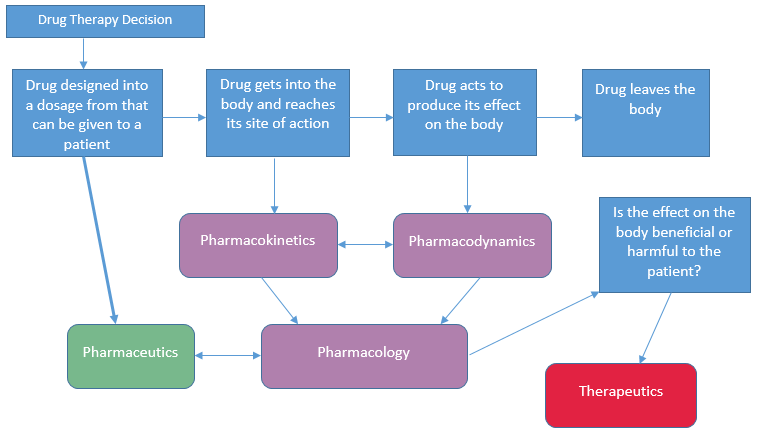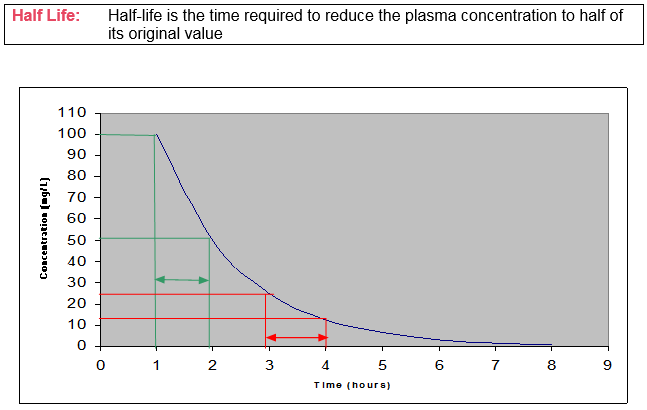At the end of this section you should be able to: Describe the basic principles of pharmacokinetics and pharmacodynamics in the context of drug handling using examples of specific medicines
Scientific Basis of Prescribing

What’s in a medicine/drug?

Bioavailability: …is the proportion of an administered dose of medicine, which reaches the systemic circulation.
- We assume that 100% of a drug enters the circulation after IV injection.
- By any other route, it is a proportion of this, expressed as 0-1.0.
e.g. oral iron - approx. 0.1 bioavailability therefore need a higher dose
It is affected by:
- Dosage form and route of administration
- Dissolution and absorption of drug
- Stability of the drug in the GI tract (if oral route)
- Extent of drug metabolism before reaching systemic circulation
- Presence of food/drugs in GI tract
Volume of distribution
- The volume of distribution (Vd), also known as the apparent volume of distribution, is a calculated theoretical value. It is used clinically when trying to determine the loading dose necessary for a desired blood concentration of a drug, and is also used for estimating a blood concentration in the treatment of overdose
- It is the size of a compartment which will account for the total amount of drug in the body based on the amount in the plasma at time zero
- Drug companies will use this value when working out how big a dose is required to achieve a certain concentration in the blood stream. A drug with a large volume of distribution will tend to require a larger dose to achieve a set concentration in the bloodstream
Useful link: http://www.nottingham.ac.uk/nmp/sonet/rlos/bioproc/vd/index.html
Clearance
- This is the measure of the removal of drug from the body or the volume of plasma completely emptied of drug per unit time
- This includes metabolic as well as renal and biliary clearance
- Clearance does not indicate the amount being removed but the volume of plasma (or blood) from which the drug is completely removed or cleared in a given time period
- If the concentrations 1g/L and the clearance is 1L per hour then the rate of elimination is 1g per hour
